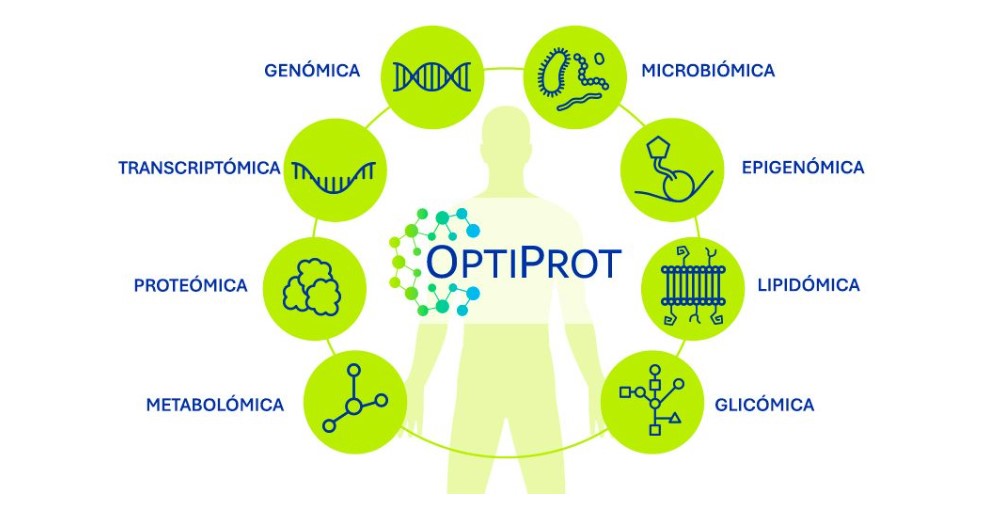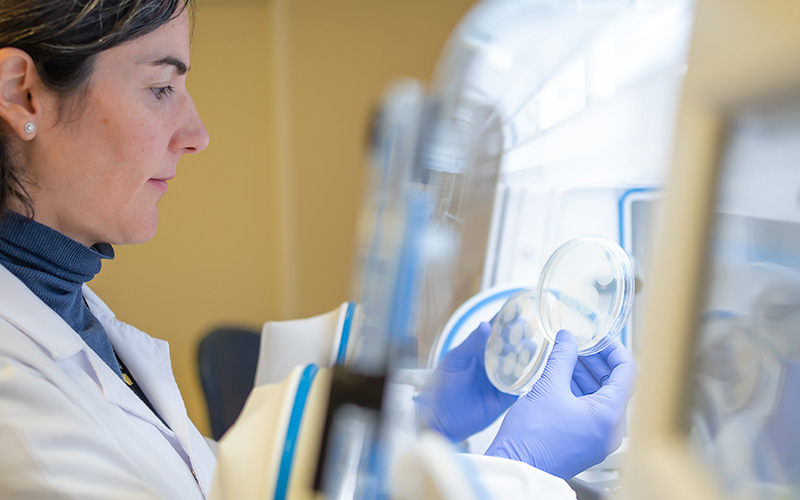The power of omic technologies: understanding the interaction between food and health
Últimas noticias
Digital Transformation of the Fishing Fleet: AZTI Explores the Future of the Industry with AI and Sustainable Solutions
The replica of the San Juan will set sail on a scientific mission thanks to an agreement between Albaola and AZTI.
Artomaña Txakoli Achieves the Best Enviroscore Category (A), as a Result of Its Environmental Commitment
Omic technologies are a set of advanced scientific tools that facilitate the study and analysis of the various molecular components of living organisms at a deep level. Each type of omics technology focuses on a specific class of biomolecules, such as genes, proteins, metabolites and more. These tools are fundamental to understanding how organisms function at the molecular level and their interactions with the environment, food and other external factors.
In other words, omics technologies provide us with a more precise understanding of how ingredients, their sourcing and processing impact human health.
Which are the main omic technologies?
- Genomics: Focuses on DNA, investigating the structure, function and evolution of genes, providing information on their role in the development and functioning of organisms.
- Transcriptomics: Examines RNA and gene expression, analysing the ‘messages’ generated in the body and helping to decipher the genetic language related to our body’s response to different foods.
- Proteomics: Focusing on the set of proteins in an organism, this technology makes it possible to identify the key proteins involved in health and food metabolism.
- Metabolomics: Analyses metabolites and metabolic processes, providing critical information on how the body produces and uses molecules in response to food intake.
- Microbiome: Studies micro-organisms in the human body, food and the environment, contributing to the creation of probiotics and the analysis of how these micro-organisms influence our health.
- Epigenomics: Investigates functional changes in the genome that affect gene expression without altering the DNA sequence. This technology allows us to understand how food and environment can influence our genetics.
- Lipidomics: Focusing on cellular lipids, this discipline helps to understand the role of fats in the body and in the diet, revealing their impact on metabolism and health.
- Glycomics: Studies glycans (carbohydrates) and their effect on biological functions, allowing us to understand how these complex sugars interact with the body and affect our health.

OPTIPROT
In order to bring these technologies closer to the general public, within the OPTIPROT project, an infographic has been produced that clearly explains all these technologies. OPTIPROT seeks to increase knowledge and training to offer the food industry tools that facilitate the use of new protein sources for the development of healthy foods and ingredients by promoting the application of omics technologies.
The infographic is available on their website.







